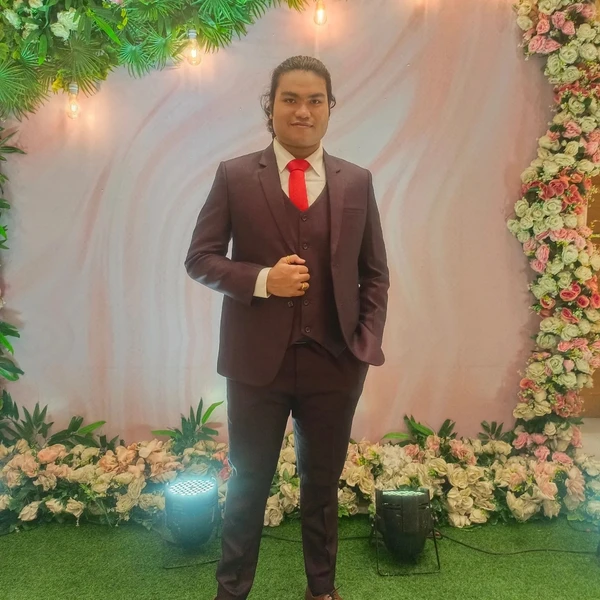
Hobbies and interests
Baseball
Basketball
Speech and Debate
Student Council or Student Government
Community Service And Volunteering
Biking And Cycling
Lacrosse
Physics
Mathematics
Reading
Academic
Contemporary
Adult Fiction
Novels
I read books multiple times per month
Pulok Dev
985
Bold Points1x
Finalist
Pulok Dev
985
Bold Points1x
FinalistBio
I’m a student who values both academic excellence and emotional depth. With a strong passion for mathematics and physics, I’ve always found joy in problem-solving and pushing myself intellectually. These subjects not only challenge me but also inspire my dream of becoming an engineer—someone who builds solutions that improve lives, especially in communities that have long been underserved.
My journey through foster care shaped much of who I am today. It taught me resilience, empathy, and the importance of showing up for others. Those lessons have guided me both personally and as a leader in my school, where I serve as a college prefect. In that role, I strive to lead with integrity, listen more than I speak, and ensure that every voice in our community feels heard and valued.
Community involvement is deeply important to me. Whether it’s mentoring younger students or volunteering for outreach programs, I try to approach every act of service with compassion and intention. I believe that small efforts—when done consistently and with care—can create lasting impact.
My long-term goal is to return to my home country and contribute to its development through engineering and public infrastructure projects. I want to help build a future where access to education, clean water, and safe transportation isn’t a privilege, but a right. Everything I do today, from my studies to my leadership roles, is a step toward that vision.
Education
Morton High School
High SchoolMiscellaneous
Desired degree level:
Bachelor's degree program
Majors of interest:
- Mechanical Engineering
Career
Dream career field:
Aviation & Aerospace
Dream career goals:
Sports
Cricket
Club2019 – 20245 years
Public services
Volunteering
Dhaka Eco club — Organiser2023 – 2025
“I Matter” Scholarship
It was a rainy Thursday afternoon when I first met Jamal. I was volunteering at a local shelter that ran weekly tutoring sessions for foster youth—something I signed up for because I understood, all too well, what it meant to feel like a number in a system. At 14, Jamal had been through three different homes in the past year. He walked into the room with his hoodie up, head down, and eyes that scanned everything but met no one’s. He sat at the edge of the table, arms crossed, clearly not interested in being tutored—or perhaps, not used to being helped.
At first, we barely spoke. I would read the questions aloud; he would shrug. I would try jokes; he would blink. But I kept showing up. Week after week, same time, same seat, same gentle persistence. One day, I brought in a small Rubik’s cube. I wasn’t great at it, but I figured it could be a break from the usual worksheets. His eyes lit up just a bit, and he reached for it. That day, we didn’t finish a single math problem, but we solved the cube—together. That was the breakthrough.
From then on, Jamal started talking—not a lot, but enough for me to learn that he loved puzzles, hated algebra, and dreamed of being an architect because “buildings don’t leave you.” That line stuck with me. Over the next few months, we tackled fractions and blueprints, geometry and Lego models. He would sometimes ask, "You really think I can be something?" and I would always answer, “You already are.”
Helping Jamal wasn’t about swooping in and changing his life—it was about showing up, listening, and seeing him for who he was beyond his circumstances. There were no grand moments or miracle turnarounds. But slowly, he went from failing math to getting C’s, then B’s. He started staying after sessions to help clean up and even began mentoring a younger kid. The boy who once wouldn’t speak was now the one encouraging others.
That experience taught me that helping someone doesn’t always look like a heroic act. Sometimes, it’s quiet. Sometimes, it’s just being consistent in a world full of inconsistency. As someone who has faced my own share of uncertainty—moving homes, adjusting to new environments, often feeling like I had to earn care—I recognized the kind of help Jamal needed wasn’t flashy. It was relational. And real help, I’ve learned, is rooted in empathy, not ego.
I walked into that shelter hoping to be useful. I walked out with a deeper understanding of resilience, trust, and the quiet power of presence. Helping Jamal reminded me that sometimes, just showing up and believing in someone can be the most transformative act of all.